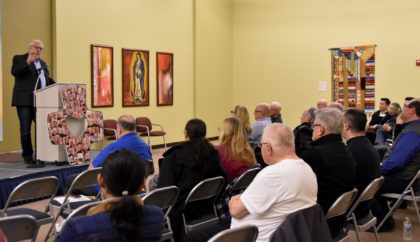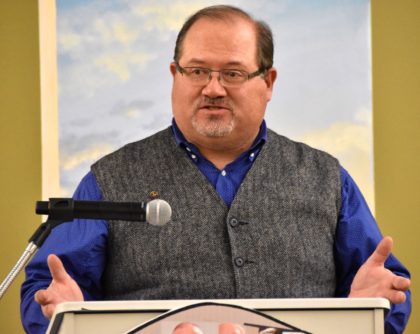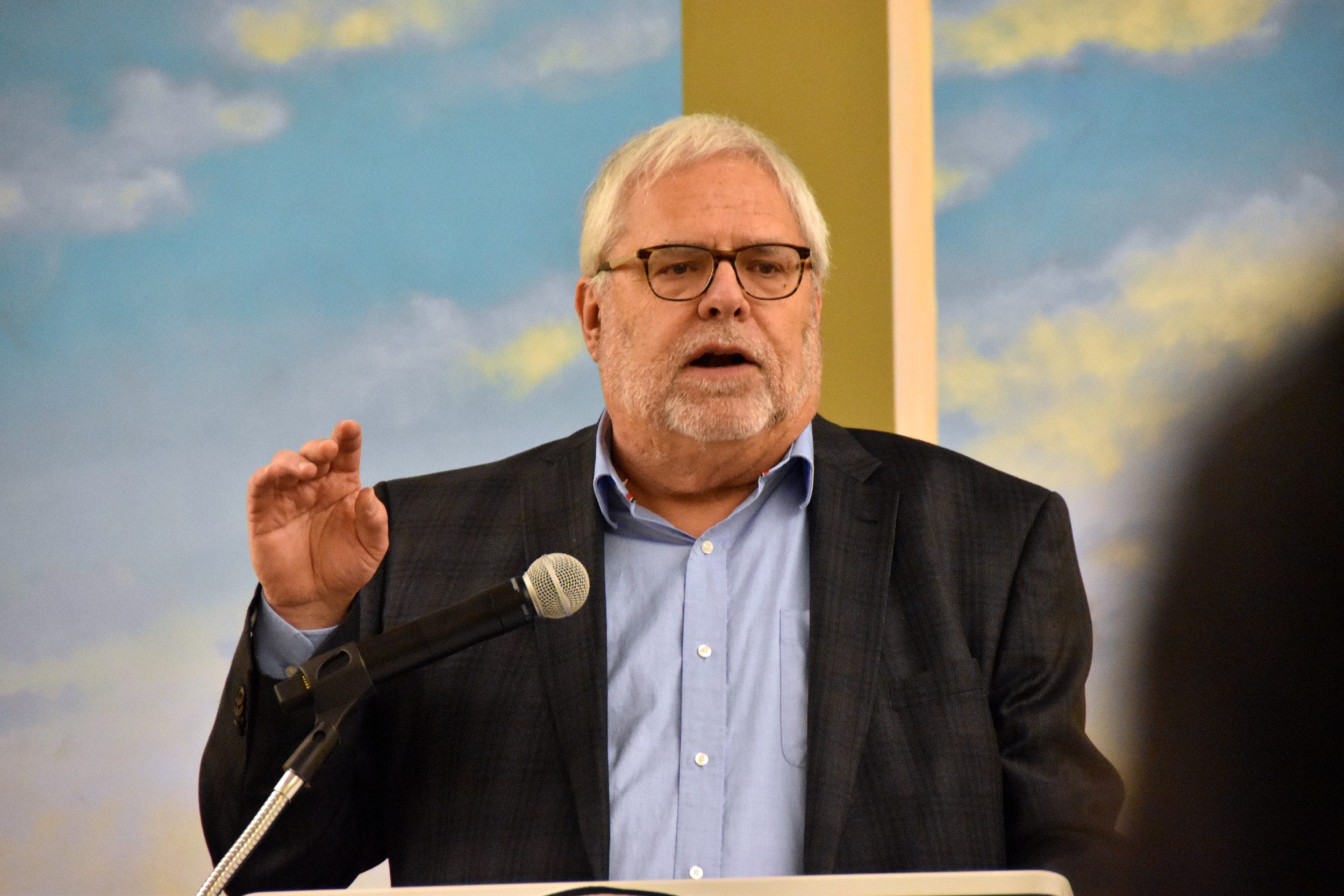“Human trafficking is a crime against humanity. We must unite our efforts to free victims and stop this crime that’s become ever more aggressive, that threatens not just individuals, but the foundation values of society.”
-Pope Francis
There are many forms of human trafficking and migrants are especially vulnerable. It was because of this that the North American Migration Committee sponsored a presentation by Dn. Steve Przedpelski, executive director of Franciscan Peacemakers in Milwaukee. Approximately 30 SCJs, students and members of the public gathered at the Provincial Conference Center on November 18 to hear him speak of his 24 years of working with victims of street prostitution, most of whom are also victims of human trafficking.

Dn. Steve talked about what it means to be trafficked as a prostitute. Generally, the victim isn’t kidnapped, forcibly removed from her home to serve as a sex worker. Instead, skilled traffickers play on a person’s vulnerabilities, often putting in three to six months of time “grooming” the victim. Once that victim trusts and feels loved by the trafficker, he asks more of her. He asks her to help him raise cash for an emergency by selling her body. If she refuses, the threats begin. He talks about hurting not just her, but the victim’s family.
“So many times we romanticize Jesus,” said Dn. Steve. “How many times have we heard or used the words, ‘And he laid down his life for his friends?’ When a 14-year-old girl says to me, ‘What choice did I have? I love my mom, I had to protect her?’ I see someone who has laid her life down for another.”
In choosing to lay down her life for another, she becomes another victim of the forced sex trade, of human trafficking.
Most of Dn. Steve’s knowledge of human trafficking comes through his ministry with Franciscan Peacemakers. The more he has come to know about the circumstances of those affected by sex trafficking, the more he feels morally compelled to do something, and to encourage others to do something.
But a recent news story reminded him that those who are victims of the sex trade are not the only ones who are caught in human trafficking. The morning of his presentation he heard a story on the national news about a reporter who spent ten weeks in Madagascar learning about the exploitation of children, as young as four, sent into dangerous mines to harvest mica. The mineral is a key component in everything from electronics to cosmetics.
“These children are victims of human trafficking, just as the women with whom I work,” said Dn. Steve. “I have to ask myself, ‘How am I benefiting from these children?’ ‘Am I any better than the man who is seeking to pay for sex?’
“So much of human trafficking comes down to profit. It is the exploitation of human beings to make money.”
It is an affront to the sanctity of human life.
“People say that this is too big of an issue, that one person can’t make a difference,” added Dn. Steve. “That’s right, there is nothing that I can do alone. But we can work together to make a difference. There are coalitions of people and organizations –– church, civic, schools, law enforcement –– who are working together to make a difference. We can all do something together.”
Raise awareness

“We are called to be a part of the growing awareness, part of the response to this abrogation of love,” said Br. Duane Lemke, SCJ, who both introduced and closed the evening.
“Raise awareness about this issue,” he continued. “When people ask you, ‘What have you been up to?’ tell them that you went to a workshop on human trafficking. Tell them what you learned, tell them what concerns you. Raise awareness by not being afraid to talk about such an important issue.
“We must become a part of the personal and social response to the human trafficking that surrounds us.”
If you would like to share information about someone whom you think might be involved in, or be the victim of human trafficking of any kind, call the National Human Trafficking Hotline at (888) 373-7888 or go to https://polarisproject.org to learn more.

